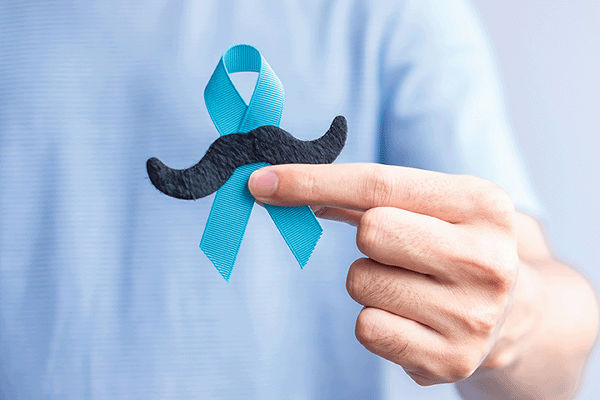Do NPC Summons Increase Boss Health in Elden Ring?
Introduction
Elden Ring, the critically acclaimed action RPG developed by FromSoftware, has captivated millions of players with its massive open world, deep lore, and challenging gameplay. Among its most defining features are the intense boss battles, which test players’ skill, patience, and strategy. To ease the difficulty, the game offers several forms of assistance, including NPC summons—friendly characters that can be called into battle to help defeat formidable foes.
However, many players ask a common question: Do NPC summons increase boss health in Elden Ring? Understanding this mechanic can significantly impact how you approach battles and whether you decide to fight solo or seek help.
In this article, we’ll break down how NPC summons work, whether they affect boss health, how they differ from player summons, and how to use them effectively without compromising your gameplay experience.
Understanding NPC Summons in Elden Ring
What Are NPC Summons?
NPC summons (Non-Playable Character summons) are allies controlled by the game’s AI, which you can summon to assist you in specific battles. These NPCs are often tied to the game’s lore and questlines, making their involvement in fights not only useful but also immersive. They typically appear as golden summon signs outside of boss arenas.
How to Summon NPC Allies
To summon NPCs in Elden Ring, you usually need to:
- Activate a Summoning Sign: Found near fog gates or within boss arenas.
- Use Furlcalling Finger Remedy: Reveals summon signs in the area.
- Meet Quest Requirements: Some NPCs only become available after completing parts of their questline.
Types of NPC Summons
- Storyline NPCs: Such as Blaidd, Nepheli Loux, or Millicent, who assist during key fights.
- Quest-Based NPCs: Appear in boss battles relevant to their story progression.
- Spirit Summons (Ashes): While not technically NPCs, Spirit Ashes function similarly but are fully controlled by the player.
Do NPC Summons Increase Boss Health?
The Simple Answer: No
Summoning NPC allies does not increase a boss’s health in Elden Ring. Bosses retain their original stats whether you fight alone or with NPC companions. This mechanic makes NPC summons one of the best forms of assistance for struggling players, as they provide significant support without altering the challenge level of the fight.
Why NPC Summons Don’t Increase Boss Health

FromSoftware designed NPC summons as a solo-player-friendly mechanic, giving those who prefer to play offline or avoid multiplayer interactions a fair chance at overcoming challenging bosses. Unlike co-op summons, which involve other players and thus require difficulty balancing, NPC summons are meant to level the playing field without artificially inflating difficulty.
Player Summons vs. NPC Summons: Key Differences
Player (Co-Op) Summons
When you summon real players to help in co-op mode, the game automatically increases the boss’s health to maintain balance. This ensures that a group of players cannot simply overpower a boss too easily.
NPC Summons
In contrast, NPC summons:
- Do not trigger multiplayer scaling.
- Do not affect rewards or loot drops.
- Are available even when playing offline.
This distinction is crucial for players deciding how to approach difficult encounters.
Why Use NPC Summons?
1. Distraction and Aggro Management
NPCs can draw the boss’s attention, giving you valuable opportunities to heal, buff, or land heavy attacks.
2. Additional Damage Output
While not always as powerful as a human player, NPCs still deal significant damage over time.
3. Questline Progression
Summoning certain NPCs can progress their stories, sometimes unlocking unique endings, items, or lore revelations.
4. No Downsides
Since NPC summons don’t make fights harder, there’s no penalty for using them.
Best Practices for Using NPC Summons
1. Prepare Before the Fight
Ensure you have the Furlcalling Finger Remedy ready and check for summon signs around the arena.
2. Upgrade Your Spirit Ashes
Pairing NPC summons with strong Spirit Ashes can create an overwhelming advantage in tough fights.
3. Engage with NPC Quests
Completing NPC storylines often unlocks them for multiple fights and rewards you with powerful items.
4. Timing Matters
Summon NPCs right before entering the fog gate to maximize their lifespan in battle.
Common Misconceptions About NPC Summons
- “NPC summons make the game too easy.”
Not necessarily. While they provide assistance, many bosses remain highly challenging even with help. - “Using NPC summons locks you out of certain endings.”
False. NPC summons do not affect major endings, though completing their quests may influence side outcomes. - “NPC summons are weaker than player summons.”
This varies. Some NPCs, like Black Knife Tiche or Mimic Tear (as a Spirit Summon), can rival or even surpass human allies in effectiveness.
FAQs
1. Do NPC summons count as multiplayer in Elden Ring?
No. NPC summons are part of the single-player experience and do not trigger co-op scaling.
2. Can I use NPC summons in every boss fight?
No, they’re only available for specific bosses and require certain conditions to be met.
3. Do NPC summons disappear permanently if they die in battle?
No, they only disappear for that fight and can be summoned again next time.
4. Can I summon both NPCs and real players for the same fight?
Yes, you can use a combination of NPC summons and co-op partners.
5. Do NPC summons affect loot drops or runes gained?
No, your rewards remain unchanged whether you fight alone or with NPC assistance.
Conclusion
In Elden Ring, NPC summons do not increase boss health, making them an essential and risk-free resource for players seeking aid in the game’s punishing battles. While co-op summons from other players will scale boss health to ensure balanced gameplay, NPC summons remain a helpful and fair way to overcome challenges without altering difficulty.
Whether you’re exploring the Lands Between solo or experimenting with different strategies, NPC summons can enrich your gameplay experience, progress storylines, and make epic encounters even more memorable.






